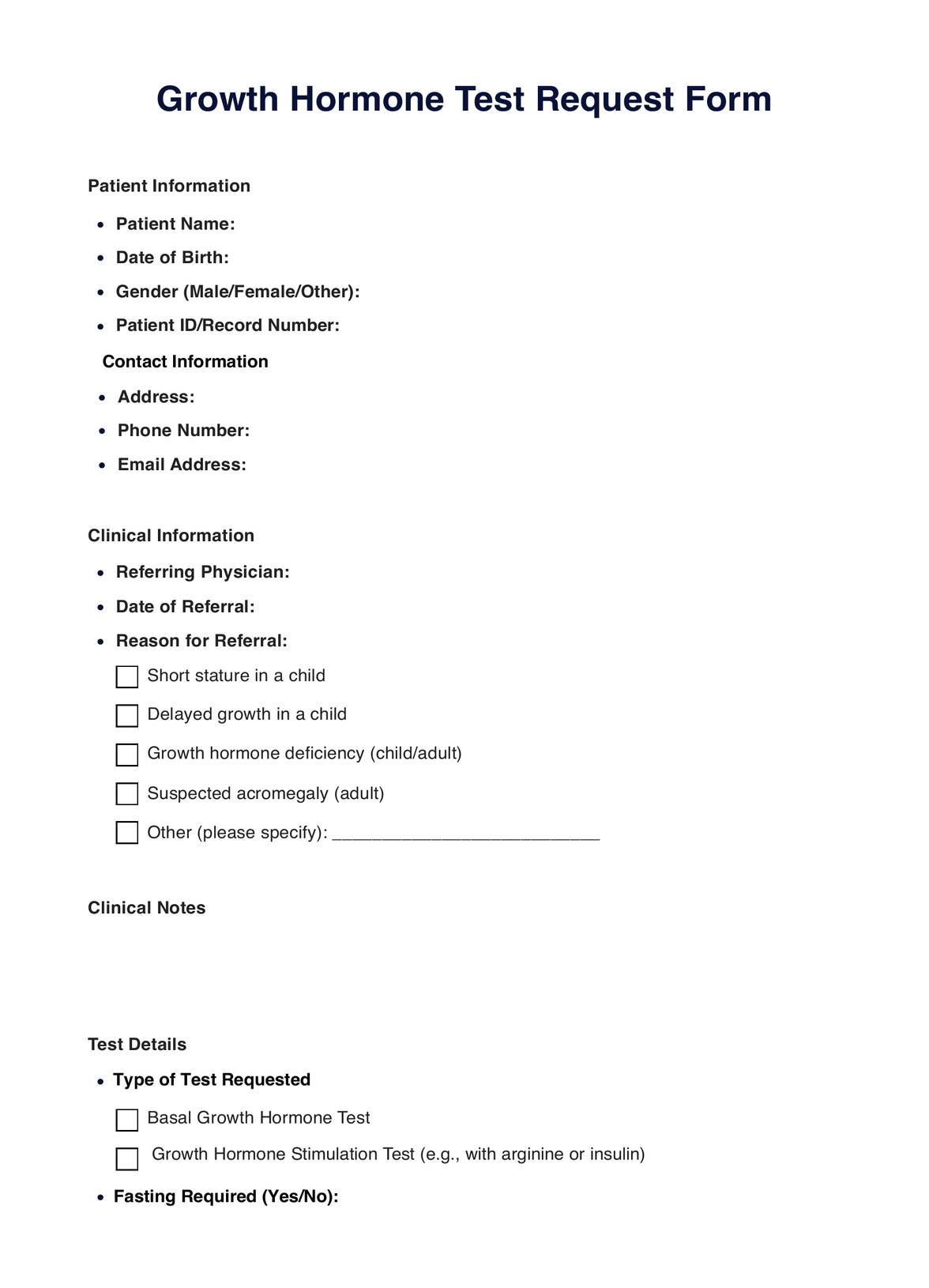Pediatricians, endocrinologists, and other healthcare providers may request a Growth Hormone Test for children with growth issues. In contrast, adult endocrinologists and specialists often order it for adults with suspected growth-related disorders.

Growth Hormone
Get accurate diagnosis and management of growth-related conditions with our Growth Hormone Test. Learn more.
Growth Hormone Template
Commonly asked questions
Growth Hormone Tests are used when there are concerns about growth disorders, such as short stature, delayed growth in children, or conditions like acromegaly in adults. They are also employed in monitoring growth-related conditions and assessing the effectiveness of treatment.
Growth Hormone Tests involve drawing a blood sample, usually in the morning, to measure the concentration of growth hormone. The blood sample is then analyzed in a laboratory, and the results are interpreted in the context of the patient's medical history and clinical evaluation.
EHR and practice management software
Get started for free
*No credit card required
Free
$0/usd
Unlimited clients
Telehealth
1GB of storage
Client portal text
Automated billing and online payments











